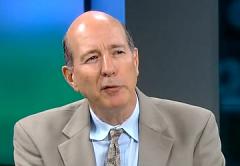The theory of global imbalances: mainstream economics vs. structural Keynesianism
17 November 2014 4:00 pm CET
Thomas I. Palley, Senior Economic Policy Advisor, AFL-CIO, Washington DC
Venue
wiiw, Rahlgasse 3, 1060 Vienna, lecture hall (entrance from the ground floor)
Description
Prior to the 2008 financial crisis there was much debate about global trade imbalances. Prima facie, the imbalances seem a significant problem. However, acknowledging that would question mainstream economics’ celebratory stance toward globalization. That tension prompted an array of theories which explained the imbalances while retaining the claim that globalization is economically beneficial. This paper surveys those new theories. It contrasts them with the structural Keynesian explanation that views the imbalances as an inevitable consequence of neoliberal globalization. The paper also describes how globalization created a political economy that supported the system despite its proclivity to generate trade imbalances.
Dr. Thomas Palley is an economist living in Washington DC. He holds a B.A. degree from Oxford University, and a M.A. degree in International Relations and Ph.D. in Economics, both from Yale University. He has published in numerous academic journals, and written for The Atlantic Monthly, American Prospect and Nation magazines. Dr. Palley has recently started a project, Economics for Democratic & Open Societies. The goal of the project is to stimulate public discussion about what kinds of economic arrangements and conditions are needed to promote democracy and open society. Dr. Palley was formerly Chief Economist with the US “China Economic and Security Review Commission”. Prior to joining the Commission he was Director of the Open Society Institute’s Globalization Reform Project, and before that he was Assistant Director of Public Policy at the AFL-CIO.
